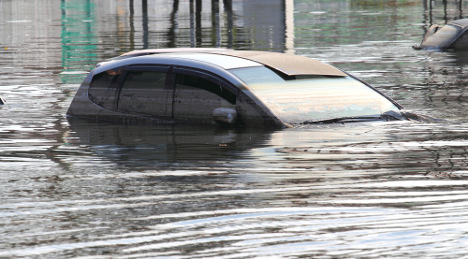Copart announces post-Matthew land expansions

By subscribing, you agree to receive communications from Auto Remarketing and our partners in accordance with our Privacy Policy. We may share your information with select partners and sponsors who may contact you about their products and services. You may unsubscribe at any time.
DALLAS –
In the aftermath of Hurricane Matthew, Copart has activated reserve land in Georgia and Virginia in addition to expanding existing locations in North Carolina and Florida.
The land expansions and activations will allow Copart’s Catastrophe Response Team (CAT Team) to provide even greater service in response to weather-related damage.
“We have a long history of preparing for and responding to catastrophes. This year, our reinvestment strategy has led us to expand in areas that frequently incur damage from natural disasters. That focus allowed us to immediately activate locations in Georgia and Virginia when Matthew hit the East Coast,” said Will Franklin, executive vice president of Copart.
“We are also fortunate to have been able to add land in the Carolinas and Florida as an immediate response to Matthew.”
In addition to new land added in response to Hurricane Matthew, Copart had already announced expansions of its locations in Florida and North Carolina, along with a new location in Georgia this year. The land has provided Copart the capacity needed to meet immediate demand brought on by extreme weather.
Copart’s CAT Team is a group of elite employees who are ready and willing to quickly respond in the face of weather-related catastrophes.
Subscribe to Auto Remarketing to stay informed and stay ahead.
By subscribing, you agree to receive communications from Auto Remarketing and our partners in accordance with our Privacy Policy. We may share your information with select partners and sponsors who may contact you about their products and services. You may unsubscribe at any time.
The CAT Team includes mobile command centers equipped with generators and satellite technology as well as the Copart Catastrophe Response Fleet made up of haulers that each carry four cars. These resources allow Copart to quickly mobilize and overcome challenges presented by catastrophes in order to help communities recover.
“Not only do we strive to provide an unmatched experience, but we are always looking to contribute to the safety and quality of life of our local communities,” said Sean Eldridge, Copart’s chief operating officer. “In preparation for Hurricane Matthew, our team was put on alert, and our dedicated CAT Team did what they do best — responded and assisted while operating at the highest level.”
Last year, the CAT Team responded to flooding in Columbia, S.C., and more recently, to record-breaking flooding in the Baton Rouge area.


